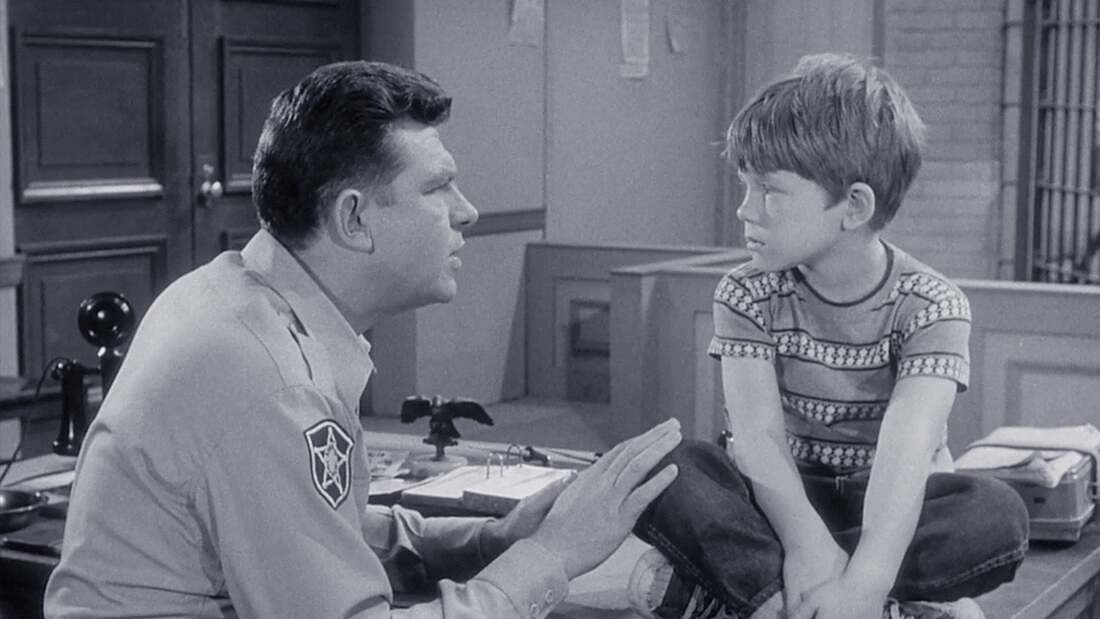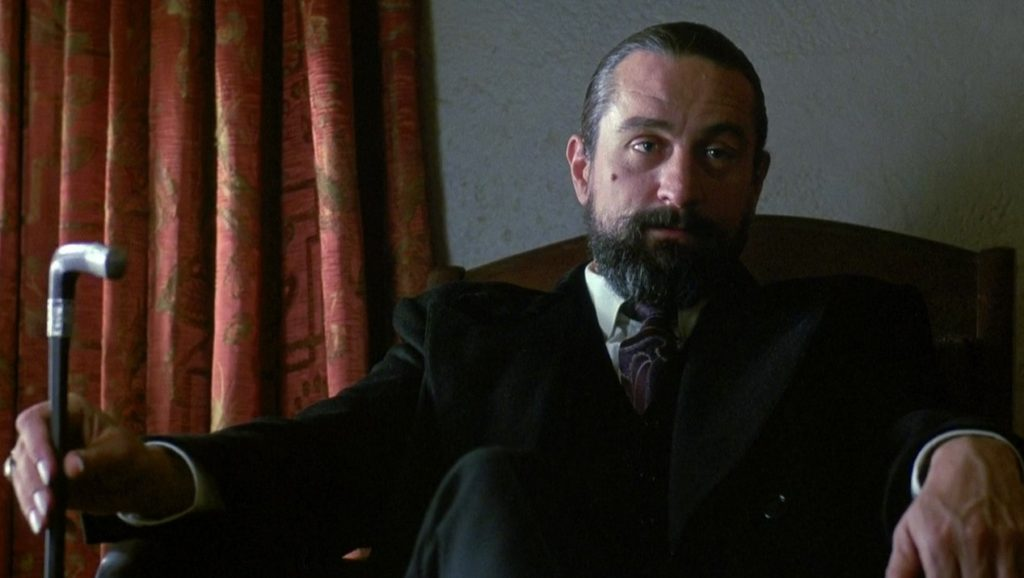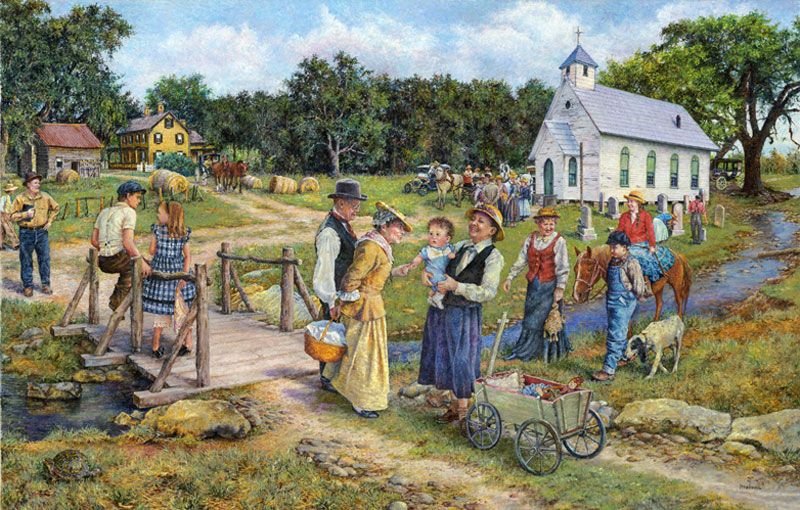|
What is the South? By South we mean neither a direction nor a place in relation to another place. The South has long since transcended the literal meaning of the word much like the Land of the Rising Sun is Japan, regardless of being east of China. The words South or Southern encompass a People, their land, and their ways. Just like Norway. Just like Mexico. Just like Arabia. The People and the Land are inseparable for as long the People’s descendants occupy it and for as long as their way of life, or culture, is passed uninterrupted from one generation to another. Just like New York City, or Atlanta. Well, not quite. There is a New York City culture of course and New Yorkers may be proud of their city. And Atlanta is full of people and many of them may love Atlanta. But whatever has arisen that stirs the heart has not arisen from the land, but rather from the infrastructure. It is the I-285 that allows them to traverse great distances quickly in order to get to house, work, school, entertainment, and food. It is layers upon layers of floorspace in the form of tall buildings packed tightly together, all connected by trains within tubes that allow people to quickly access a host of desirable places and services. It is the supermarkets and drive-throughs and restaurants where food comes from. And food is what distinguishes a population from a People and a place from a Land. Food is more central to human life than sex, and only slightly less central than air, protection from the elements, and water. The Promised Land was called ‘the land of milk and honey,’ after all. It is food that makes a population a People by rooting them to the land which then becomes their Land. Let’s go back to the beginning because we live in a weird age where the obvious needs to be pointed out. We are individuals with an unchanging human nature. There are two sexes, man and woman, the man possessing a masculine nature, and the woman a feminine. Their respective human natures incline them to form a long-term union. This union between man and woman is marriage, and family is born of this union. The family is a product of man and woman’s human nature, and its nature is unchanging. The individual and family are the fount of each other and neither can exist for long without the other. The individual serves and protects the family. The family serves and protects the individual. The individuals of a family are united by bonds of intense sacrificial love that drive the individual’s decisions. From the family is born the People, the People being a naturally occurring union of families via inter-marriage for the purpose of mutual aid and protection. The individual exists at all times in a world of danger, decay, and limited means, and it is the nature of the individual to seek its own survival, best interests, and desires, as well as the same of those he or she cares for, be that his family or his People. Neither the individual, the family, nor the People exist independent of the land. Not just any land but the land from which the People, its families, and its individuals, have learned over the course of time to extract a living. The family, the People, and the Land are the trinity of the individual’s security and prosperity. Stretching backwards into unknowable history, the individual, the family, and the People have lived intertwined and inseparable on land. Forever migrating, splitting, and morphing into new Peoples to be sure, but always on land. At least those Peoples that survive to pass on their ways, I mean. People may group themselves however they wish, but any corporate body that is not connected to the land is dependent upon those that are, and thus runs the greater risk of disintegration or dissolution. And from the People’s struggle to survive on their Land is born their way of life or culture. That collection of habits, customs, mores, traditions, patterns, ways, means, assumptions, notions, and inclinations that answer most of the People’s questions. Culture is the People’s autopilot, their great security blanket. The wheel that need not be re-invented. It is this culture, born of the People’s struggle with their land, that sustains them over the generations, possibly centuries. The South is one such Land. However, we are uncommon in the annals of history because we were born of two peoples who were transplanted to a new world, at almost the same time, who could not be assimilated, and yet would live side by side for an age in perfect inequality. The union in the early 17th Century of the Briton and the African may be thought of as a tree. The Briton was the trunk, and the African the branch of an alien tree grafted upon it. This grafting of a subordinate African branch to a dominate British trunk four hundred years ago produced a strange tree, bizarrely fruitful, in some ways bitter, in some ways sweet. There is really no tree out there like it, and I believe Southern culture will survive modern times, and that our best centuries are before us. This piece was published at Look Away on September 26, 2023.
2 Comments
America’s or American culture’s great foundational problem is that our ancestors elevated ideas to sovereign status, forcing us since then to reconcile them with reality after the fact. The great examples being that we stated out of the gate that we hold certain truths to be self-evident, chief among them that we are free and equal. Just as one thing leads to another, ideas have consequences. If I believe that somewhere north of Henry County, Tennessee there exist a tropical paradise and I set off on a great trek to find it, I will eventually freeze to death. Or, I may say that people have a natural right to own property and that one of the state’s functions is to defend that right. On the other hand you may say that all property should be held in common and that the state should steward and distribute it. Two such ideas would produce very different results indeed! The tasks then would be to measure those results and then assess them to see whose idea is best. But measuring and assessing consequences requires that we agree on values. I think that we would agree that freezing to death is bad. We’ll likely agree on the length of an inch and the span of a second. But how do we measure whether your or my idea of organising a government is best? That must depend upon our goal, right? And goals are based upon what we value, right? I would say that our goal ought to be to live well, humanely, and rationally within the comfort of our family and people, while working towards their security and well being, as well as that of the next generation, and thus the best government is that which expedites this goal. Our government will reflect what we think our goal ought to be. It will emanate from our first principles, or what we hold to be sovereign truth i.e. the non-negotiables. So if we stated from the beginning that freedom and equality are our first principles or that which we value most, then what shall our end be? Well, that end will be what we have today, which isn’t all bad. But on the otherhand, that end also evidently includes feminism, sexual liberation, the weakening of the marriage bond, and the attendant erosion of the family, which has produced legions of semi-broken people and none too few that are unhinged. Our worship of individuality, freedom, and equality has also produced the legitimisation of homosexuality and the legalisation of so-called gay-marriage and most alarmingly for our physical security the feminisation of the military. And now on its bleeding edge it has produced men pretending to women beating the stuffings out of women in women’s sports. All in the name of freedom, equality, and individuality. I can pretend I am a bird and demand that you agree that I am in fact a bird. And you may do just that praising my fine aquiline nose and feathers. But I will never lay an egg, and if I leap from a cliff I will not fly far before falling straight down. Ideas can be good and useful if they emanate from or are built upon a solid foundation of truth. And this foundation must include two and two equaling four, water being wet, and a common sense understanding of human nature. Otherwise, we build upon the sand. This piece was previously published at Look Away on Sept. 12, 2023.
The Prussians (a German people) were a people that are by and large no more because once uprooted from your ancestral homeland you cease to be that people. Just like the British that settled the American South became Southerners (or today just plain Americans) and ceased to be English or Scottish or Scotch-Irish. And peoples are similar to individuals because they are by nature composed of individuals, individuals that collectively are a people because they share space through time that has produced commonalities, or a unique culture. Peoples, like individuals, have their own personality that is easily observed by other peoples. Southerners are, or Southern culture is, no exception. The poor Prussians! The long march of history would make of the Prussians a warlike, relentless, and efficient people that would bring them to the greatest catastrophe and triumph of modern German history, namely the crushing Prussian (slash-German) victory over the French in the Franco-Prussian war of 1870-71. ‘But Mark, fool. How could their victory be a catastrophe?’ Because victory can be transformative, confirming, and addictive. Ask any failed gambler. Their victory over the hapless French (who honestly earned that ass-whipping) confirmed the military temperament and culture of the Prussians and addicted the German people generally to marshal glory and gave them an inflated idea of themselves, which would encourage them to go all-in in 1914 and then again in 1939, chasing that winning hand and victor’s high. The rest is history. What is not well known is that after 1945 the Prussians, along with their border, were relocated en masse westward and Prussia for all practical purposes ceased to exist. The classic example of living and dying by the sword. Southerners are not Prussians but we are the warrior people of America and America has never fought a war that we did not approve. But we need to temper our war-like temperament. If Uncle Sam says ‘Boys, lock and load!’ we must insist that he tell us why, and not speak to us as though we are a high school football team about to take the field, but rather as adults who can understand geo-politics, and the need to make collective sacrifices from time to time. This piece was published at Look Away on July 18, 2023.
Some months ago an old acquaintance of mine called me to remind me that he owed me some money. The business was old, it wasn’t that much money, and I had completely forgotten. Had he forgotten, I would not have been aware of any injury.While Southern culture has weaknesses, dishonesty is not one of them. Like everything and everywhere you can find all the exceptions you seek, but they’ll be just that. But if you put Southerners collectively on the world’s honesty spectrum we will be considerably closer to the Finns than to the Pakistanis. Try bribing a cop sometime, or greasing the skids at any front office, public or private. The truth is that our managers, bureaucrats, and officials of all stripes, public or private, are, by and large, honest folks. Indeed our commerce is built upon a foundation of low-level administrators who simply will not steal from their employers or accept bribes. The reason is, of course, cultural. Collectively a sizeable majority of Southerners are in the habit of not lying or stealing. This is, first and foremost, because when we were lil’ bitty, the people around us were not lying or stealing, and they were also telling us not to. And occasionally when we were caught with our hands in the cookie jar or telling a fib, they may have reinforced the message by striping our pudgy lil’ legs. We can hardly help filling the mould that is our family or the people into which we are born. It’s just the nature of things. And honesty, in spite of the exceptions, I think is one the South’s greatest cultural strengths. This piece was published at Look Away on May 4, 2023.
It can go without saying that the great bulk of who we become is formed in our childhood, or from in utero and on through adolescence, by the end of which we have at last set up like concrete. Some time from our late teens on, the only thing more difficult than meaningful reform is the ability to see that it actually needs to be attempted. Peoples are similar to individuals because they by nature consist of individuals. You could hardly understand a people if you did not understand basic human nature, any more than you could understand the hive, if you did not understand the bee. One great difference would appear to be that individuals have a clear beginning and end, i.e. conception and death. Peoples on the other hand can survive centuries or even millennia before vanishing, or more likely being subsumed by other peoples, or perhaps amalgamating with another people to form a whole new people. It is easy to identify the individual. But how do you identify the people? For the Japanese and Nigerian staring at each other that is easy, though they may not be able to identify the particular kind of Far East Asian or sub-Saharan African they are looking at. But are physical features the primary indicator of to what people the individual belongs? I imagine the Norwegians and Swedes would strongly disagree. So what then is the indicator? Well, it may be summed up as culture, that nebulous collection of habits, attitudes, inclinations, customs, mores, and traditions held by groups of individuals, all born to individuals who have lived among each other in the same space for sufficient time to allow for the emergence of these commonalities. Another way to look at individuals is that we are a continuation and link of our family tree, much like the oldest oak tree in the woods is the descendant of the first oak, and bears all the resemblance, as will its descendants. We are who we are not just because of our own experiences, but also because of the experiences of our parents, grandparents, their great-great-great grandparents, their great-great-great-greats, and stretching on back into the mist of the forgotten past. Likewise peoples may be thought of as a chain, each link representing a generation, each bearing strong resemblance to the previous one. And like the individual, peoples set up like concrete too and change but slowly. And like individuals, peoples are inclined to take the path of least resistance. And as with individuals, this often leads to their degradation. And like individuals, if the people will not face their degradation, repent of it, and reform their ways, they can be assured that their descendants will eventually curse them, that is, unless they vanish and fall off the timeline altogether. This piece was previously published at Look Away on April 20, 2023.
Ok, do we have too many people or not enough? Some say too many and that we need to shrink the population. This was the thinking of the Chinese Communist Party when back in 1980 it implemented its one-child policy. Others say not enough and will point to China’s one-child policy as a case in point. As it turned out, China’s super-smart central planners failed to anticipate the impact that a falling birth rate would have forty years later or that post-industrial Chinese women would, once the restriction was lifted, choose to only have 1.3 children, much like their counterparts in Spain, Italy, Japan, and Korea. As a consequence China is now facing an irreversible population implosion and is suffering all the problems naturally associated with not having a second, third, or fourth child. One problem that it has compounded is one that is born of our human nature, namely, the question of who is to take care of the old and the young. In all human societies this task has always fallen on the shoulders of those in between, that is, those who are roughly 20 to let’s say 60 years old depending on the times in which you live. The problem with a shrinking population is that as the years roll by there are fewer adult children to care for aging parents or even grandparents, who at the same time have to take care of their own young. But c’est la vie. We’re talking about family so you do what you must. But there is a twist today in the form of the new social welfare state. In the developed world the state has promised, and to some extent has delivered cradle-to-grave care, and people, being hopelessly shortsighted as they are, have come to expect it as they do the sun to rise. All this is fine and dandy unless the state is doing so with taxes paid by a working age population that is shrinking. Spain is a prime example of this today. So the working age, tax paying population shrinks, and thus tax revenue, while the tax consuming population entering retirement expands. This is the rub. So what’s the state to do? Well, it sort of depends upon the old people because in this democratic age they vote, but also because the modern economy allows man to easily accumulate capital over the course of his lifetime– capital that is easy to preserve, liquidate, transfer, and invest– and thus the elderly also have a great deal more economic clout than they did in the past when they had to rely upon their adult children to hunt the buffalo and tend the fire. Now, what the post-WWII mass of people that are now over sixty could say is ‘Whoa-dare Margaret! This is madness. When our parents and grandparents set this neat little system up they didn’t anticipate these new and strange demographic and economic realities. Its madness that our children and grandchildren should be paying so much in taxes to support us. I mean, I don't want to be set adrift on an iceberg or turned into soylent green, but neither do I want to be an excessive burden on young folks who need to be providing for my great-grandchildren. Nope! Margaret! I think we need to lower our expectations of what the state will provide for us in our golden years!’ But how likely is this? Well, considering that old people remain human til they die and thus tend to be a wee bit self-centered and shortsighted, not likely at all. Add to this that some old folks tend to become scared of their own shadow. And so you do not have a demographic that is likely to take one for the team. Another less altruistic solution is immigration. That is, you import working age people from whatever part of the world has a surplus in order to tax them in order to keep the gravy train rolling. This will suit the bureaucrats just fine. After all, they need a paycheque like everyone else, they enjoy their status, and they just love watching the machine work. But while bureaucrats may be able to reduce all things to statistics, some statistics represent a decreasing quality of life or even human misery for the Common Man. The problem is that people bring their history, notions, instincts, inclinations, customs, expectations and kitchen smells with them. Much like the English did when they settled Jamestown which turned into Virginia which turned into the South aka America. I’m fine with that but the Indians maybe were not so much. Not all peoples (cultures) are compatible with all others and some just flat out clash. I am Generation X. My generation and especially the Boomers need to revisit what it means to be old. Our children and grandchildren do in fact owe us something, but this is a debt for services rendered, the principle one being bequeathing to them to the best of our ability a secure future. It is wrong to crush them with debt or taxes, or via mass immigration degrade our culture and thus their quality of life, so that we can enjoy a standard of living in our golden years that kings of old could not have imagined. Better to be a greeter at Walmart until you are carried out on a stretcher than to do such a thing. This piece was previously published on Look Away on February 17, 2023.
Were I to meet Satan face to face my assumption is that he would be dressed to the nines and his manners perfect. Forgive my sexism but I do assume that he would take the form of a man. But if he, she, or it were to assume the form of a woman, I assume that that ze would be a knock-out. There is that dadburn sexism again! I also assume that he would be a brilliant conversationalist, full of wit, and speak a great deal of truth. But I would also assume that the truth he spoke would be a cover for the lie that, once believed, would lead to the spit on which I would be roasted repeatedly for his amusement and supper. So, I would be on my guard. I was born during the Cultural Revolution of the 1960’s and have grown up and lived throughout the Culture War that it spawned. My enemy is Progressivism and the Wolves that drive it, though not the Carnivorous Sheep that, via democracy, support the Wolves passively in exchange for Bread and Circuses. Throughout my adult life and right up to 2020, in my naïveté, I believed that Progressives believed what they said about democracy and freedom of speech, that is, that they were supreme goods. I did not believe that these two ideas are supreme goods, but rather I believed that Progressives thought them to be so. I did believe that they were ideas that could be good and useful within a certain context. But I took some comfort in all this because it meant that we at least had some common ground. We were adversaries for sure, but at least we agreed to some common rules of engagement. After 2020 I at last understood that American Progressivism has been lying all along about its commitment to freedom of speech and democracy. As a result, I no longer trust the American Left at all and suspect that it is not nearly so interested in homelessness, the environment, or racism as it makes itself out to be. No, since 2020 the Left has continued to show its true colours. It has removed the sheep’s clothing to reveal itself to be the existential threat to sanity so that even the Common Man can at last see it. But this is good news too. For those who have the high ground, the less fog on the battlefield the better. As frightening as facing off with a red Satan with fangs, forked tail, and trident would be, at least there would be no doubt he is Satan. This piece was previously published at Look Away on Feb. 9, 2023.
I heard a sermon recently where the preacher reminded his congregation that we live in a post-industrial world where the extended family has lost much of its practical relevance and necessity. That until recently and stretching back into the mist of time we humans lived in what may be thought of as extended families, tight knit communities, or tribes. If you’ll enter into your imagination for a spell and imagine your life and the world around you were we to cease to have electricity or the combustion engine, you’ll begin to see what he was getting at. Our lives would quickly begin to resemble those of our ancestors from let’s say roughly 1900 and before. This would include not just the supreme importance of immediate family with its bonds of intense sacrificial love, but also the reemergence of the importance of the extended family with all of its bounds of sentiment, shared values, and practical value. Having to return to the speed of walking or horse, and thus unable to travel long distances quickly, the geographic space in which we live would shrink dramatically. One result of this would be that our actual dwellings would once again become centres of production, childcare, and education, as well as our hospitals and nursing homes, as they had been since the beginning of time. If country music is an indicator of longing then there may be a part of us that is drawn to what we imagine as a simpler time. Agrarianism is alive and well after all, but it remains a subculture, and there are few who choose to live it. The truth is that our great-grandmothers bought that electric stove the minute they could, as well as dozens of other gadgets that have radically reduced woman’s work. We gave up gardening when we didn’t have to garden. Likewise our horses and wagons. Thanks to the ongoing Scientific Revolution of the 17th Century and the Industrial Revolution of the 18th Century, we have now become so prosperous that famine has lost its place of honour in our collective nightmares. Not even our best story tellers in cinema can frighten us with it as we munch on a quarter bushel of popcorn. Attendant with and allowed by this great prosperity, and buoyed by mankind’s innate desire to have as much as possible in exchange for as little as possible, the modern welfare state has emerged. It has not just liberated man from famine, it has liberated woman from man, the old from the young, and driven the last nail in the coffin in our old tribal traditions. But by having lost tribe on which we were so dependent and to which owed loyalty and service, have we lost anything of meaning? If we are in fact but individuals, then no. The tribe was just a social construct born of necessity. Unless it wasn’t. Unless the tribe was and is in fact as much a product of human existence as the family itself. Unless the tribe, like the family, provides some needful function other than just the practical. This piece was published on Look Away on Dec. 8, 2022.
As a native born Southerner of British origins I am culturally what I call a 500-Year-Protestant. I can say that my people have been Protestant since their-lord Henry VIII decided that he needed to get in front of the Protestant Reformation, crown himself head of the church in England, and divorce and remarry whomever he wished. And confiscate church property while he was at it. Prior to that of course my people in Britain were Catholic and doubtless accepted the commonly held worldview of that time. The Reformation would see a new religious division added to the ordinary dynastic and resource struggles of that age. The 16th century would give my people Bloody Mary, Good Queen Bess, and a hatred of the Spanish. Times were a’changing and my people changed with them, and then eventually they began crossing the Atlantic in wooden sailing ships, bringing the entirety of who they were as Englishmen, or Scotsmen, or Scotch-Irish to a New World, coming, in time, to identify themselves as Virginians or Carolinians, and then eventually as regular Americans, i.e. Southerners. All along the way they would become Anglicans, Presbyterians, Methodists, Baptists, or church of Christ, and be deeply animated by these faiths. By the passage of time, these and other divisions would emerge, as would unifying moments. But at all times my people were being shaped by the times, as were your people, and this process continues today. Our ancestors carried the baton where they would, which they passed to us who are bobbing and weaving through woods as best we can or know how, and we will pass it on to our offspring who will continue the race more or less kind of in the general direction that we’ve been sort of heading. It has been a long time since the memory of the times of Queen Elizabeth I animated us collectively, to say nothing of Edward III, or Harold II, or Alfred the Great. Didn’t he conquer Persia or something? And then who were Hengist and Horsa? That we do not remember them does not mean that what they were and did does not live on through us. Yes the water is flowing into the Gulf of Mexico, but only because it snowed in the Rockies. But we do remember George Washington. He is on the dollar bill and the quarter, and has something to do with the 4th of July, which has something to do with America. A state was named after him and he was a pretty good feller. Something about a cherry tree too. Likewise Abraham Lincoln was honest and freed the slaves. Robert E. Lee was noble and the South’s finest. And Martin Luther King led his people to freedom against the South’s worst. However, there is a new division today that makes the Reformation look like a misunderstanding. A new history maker that sees things very differently; that is insisting that we forget what we think we know and remember; insisting instead that we know and remember what it knows and remembers. A New American who has almost no tie with the land and no sense of our founding traditions, much less what pre-dated and produced them. It is commonly known today as Woke-ism, the most recent radical manifestation of Progressivism. The differences between Catholic and Protestant were grave and have been consequential. Enormously so at the macro level. But that is nothing compared to what Progressivism had already achieved prior to 2020, and heaven forbid, what it appears bent on doing now. Sadly the division that Progressivism has created, and that its offspring Wokism is creating in our culture is likely to be permanent and enduring. But the great difference between it and Protestantism is that the latter held fast to the Book and never abandoned a common sense understanding of basic human nature, and this has allowed Protestants and Catholics to, more or less, sorta, kinda get along. And almost to unite in the face of an enemy that appears to want to redefine the answer to two plus two. This piece was published on Look Away on October 6, 2022.
‘Hard times create strong men, strong men create good times, good times create weak men, and weak men create hard times.’ G. Michael Hopf, Those Who Remain There are two constant imperatives borne of man’s human nature. He will first seek security, and then contentment or pleasure. These ideas may be summed up in the ancient adage Bread & Circuses, and he who can give either of those to the Common Man will be amongst the rulers or elite of the people. Security is difficult to attain, and if you look at history from 80,000 feet, evidently exceptionally hard to maintain for long. And even the Common Man today who has lived sixty years and remembers anything of the lives of his grandparents knows enough of the risings and fallings of man’s works to appreciate the truth of this. Surviving has been a struggle for us humans during the overwhelming majority of our known history and presumably the entirety of pre-history. And getting and staying ahead is difficult even in fat times. This is just the nature of things. It is the nature of things because if I do not raise that fork to my mouth, no one else will, and if I do not guard the contents of my plate, someone else will eat from it. I can lay in the grass for a bit, but if I do not seek shelter, eventually I’ll freeze to death, or die of pneumonia, to be eaten by ants, my bones eventually just returning to dust. So we must struggle and if the struggle doesn’t break us, it makes us stronger and wiser. And becoming stronger and wiser contributes to our security which can lead to greater contentment and pleasure. Eventually, due to the strength born of our struggle (or our ancestor’s struggles, for we inherit a great deal more than just their looks) we achieve a degree of security sufficient to allow us to devote more time and energy to the pursuit of contentment or pleasure. The problem is that we humans are shortsighted. Living off the fat of our labours, or just good fortune, it’s at this point that we usually neglect the struggle which made us strong. Thus we become weak again, which forces us to struggle once again. And the whole cycle begins anew. This cycle can only be short-circuited during the good times via understanding, wisdom, and discipline. By understanding we mean correctly interpreting our circumstances. By wisdom we mean knowing what is best or right. By discipline we mean doing that which is best or right even when we do not have to. This was originally published on Look Away on Sept. 23, 2022.
|
AuthorMark Atkins has six wee bairns who are all seventh-generation Henry County, Tennessee, and all from the same doe. It is the people of Henry County that he most wants to reach but writes to Southerners generally. He is without credentials but rather dares to speak by the same authority as the little boy who cried 'The king has no clothes!' His core belief and starting point is that like everything, we humans have a nature, it is not so hard to understand, and to pretend that it is other than it is, is to jump off a cliff. Which is what we Americans have in fact done. Archives
October 2023
|










